Published
- 07:00 am
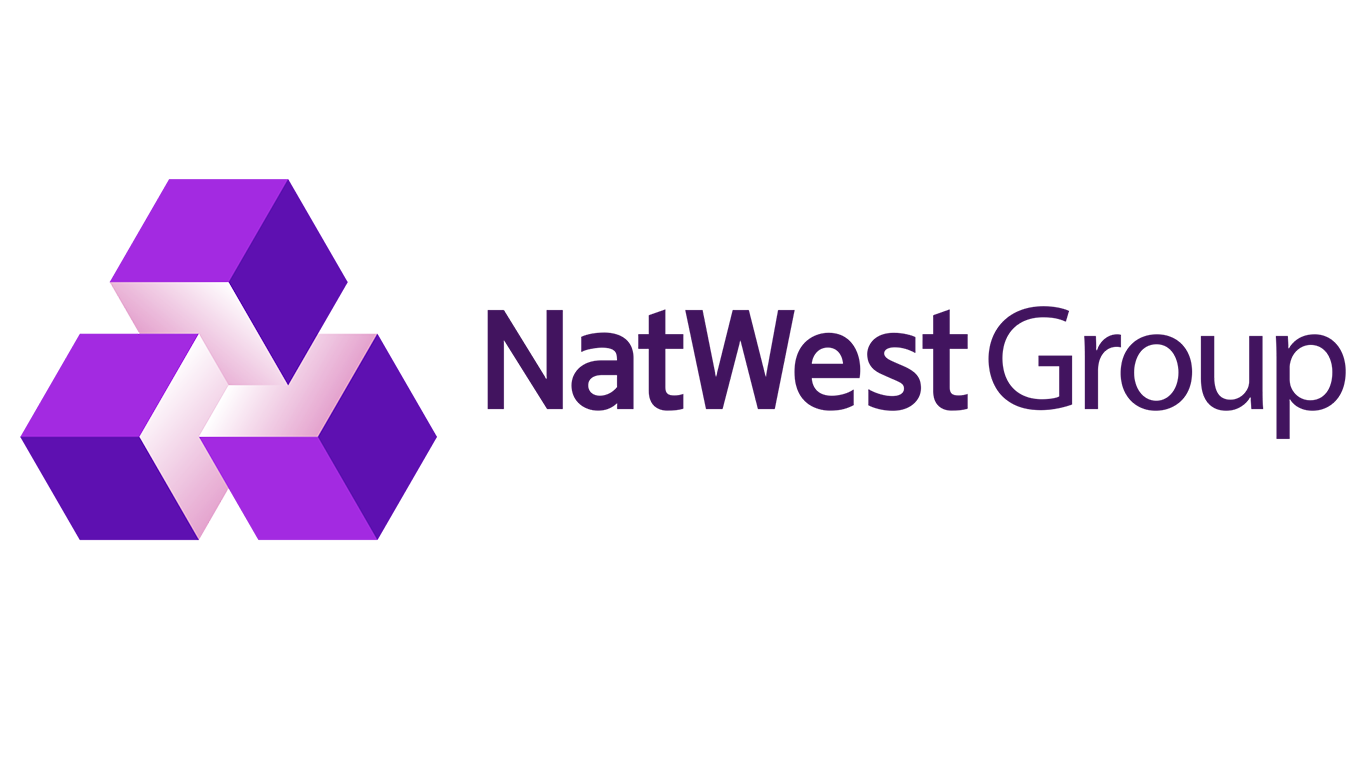
NatWest Group has signed agreements with three payment providers – TrueLayer, GoCardless and Crezco – to offer Variable Recurring Payments (VRP) as a new and convenient payment option for businesses and consumers. Today’s announcement, an industry first, means that NatWest Group will be the first UK bank to go beyond the requirement for banks to provide VRP in support of ‘sweeping’ – the automatic transfer of money between two accounts belonging to the same person.
NatWest Group’s VRP offering will enable payment providers to give businesses a new option for managing customer payments for a range of services, including utility bills and subscriptions – complementing existing payment options such as Direct Debits and online card payments.
VRP will let businesses collect customer payments via the Faster Payments service, meaning payments can be received in near-real time.
As VRPs are set up digitally, there’s no paperwork to complete either – saving time, plus reducing the risk of fraud and manual error.
Customers will also benefit from more control over their finances as they’ll be able to set maximum payment amounts and make instant payment cancellations through VRP.
What’s more, in a change to the Open Banking status quo – where customers can consent to single immediate payments only – VRP will let customers consent to businesses taking payments from their account on a regular basis, without having to consent to each payment individually.
Daniel Globerson, Head of Bank of APIs at NatWest Group, commented: “VRP has huge potential for both consumers and businesses. As a relationship bank in a digital world, we’re proud to lead the industry by delivering a new payment option through VRP, which will make it easier for businesses and their customers to manage payments for a wide range of services.”
NatWest Group had already been leading the industry, having built its VRP API for sweeping last year – well ahead of other banks – and having made the first VRP transaction for sweeping in a live environment in December.
Offering VRP as a new payment method also marks a significant development in NatWest Group’s API commercialisation strategy, which is bringing an increasingly wide variety of the bank’s services to customers and partners in innovative and convenient ways.
Jana Reid, Senior Product Partnership Manager at TrueLayer, commented: “There is so much potential that can be unlocked with VRP to deliver value for consumers and businesses. It is significant to see NatWest go beyond the regulatory mandate, embracing a wider approach to deliver new, more efficient and digitally native payment options to its customers. We’re delighted to be collaborating with NatWest once again on this industry innovation and look forward to our relationship developing over the coming months.”
Ralph Rogge, CEO of Crezco, commented: “NatWest has taken the lead in going above and beyond regulatory requirements for VRP, setting an example that we hope others across the industry will follow. At Crezco, we’re proud to play a part in delivering a new and convenient payment method that will bring benefits to businesses and consumers alike.”
Duncan Barrigan, Chief Product Officer and Chief Growth Officer at GoCardless, said: "VRPs will be a game-changer for businesses and consumers alike. From sweeping, which will help us make our money work harder without the hassle, to use cases beyond 'me-to-me' where merchants can take advantage of this digital-first, cost-effective payment method, VRPs will make 'account-on-file' the next big trend in payments. Working with NatWest, with its advanced VRP capabilities, will help us accelerate our vision of building the world's first bank payment network to help businesses access a range of account-to-account payments methods, from direct debit to VRPs, in a single platform."
To learn more about NatWest Group’s API product offering, visit bankofapis.com.
Related News
- 01:00 am

Spectrum Markets, the pan-European trading venue for securitised derivatives, announced today its product offering has widened to include cryptocurrencies as an underlying, with turbo warrants on Bitcoin and Ethereum now available.
The new products expand Spectrum’s existing suite of Turbo24s and allow brokers to offer their clients long or short leveraged exposure to the price of the two most popular cryptocurrencies.
This marks the first time financial institutions can offer European retail investor clients the opportunity to trade turbo warrants on cryptocurrencies, on-venue, 24 hours a day, five days a week.
Being able to trade overnight is particularly relevant for retail investors looking at this asset class because it allows them to reduce the gap risk presented by the 24-hour nature of cryptocurrencies, while trading on a regulated venue offers greater transparency and investor protection compared to many alternatives.
Using derivatives to access cryptocurrencies also means investors don’t need to maintain a separate crypto wallet, and enjoy greater assurances over the safer custody of their assets.
“We are proud to continue our track record of innovating to provide a better way for Europe’s retail investors, and this launch responds to very strong demand for versatile exposure to cryptocurrencies,” said Nicky Maan, CEO of Spectrum Markets.
“As well as being an easy way to access cryptocurrencies via their broker with a limited outlay, the Turbo24 products provide investors with tools to hedge exposure and better control their risk in what is, after all, a highly volatile asset class. We firmly believe there will continue to be a role for digital assets in retail investor portfolios, and we look forward to introducing further innovations and opportunities in this space,” he adds.
The knock-out function inherent to turbo warrants, through which the instrument is automatically terminated when the underlying asset hits a specific price, enables investors to effectively limit their exposure, while Spectrum’s 24-hour trading reduces gap risk, where investors lose out if asset prices change significantly while other venues are closed.
The ability to take short positions also enables investors to benefit from declining prices, and provides a valuable means of hedging long exposure as part of a wider trading strategy.
Related News
- 09:00 am

Financial services – and banks in particular – have faced trust issues for years, driven in part by painful service experiences, often disproportionate fees, and an unnecessary propensity for jargon. Let’s not forget the scandals that seem to rear their ugly heads every few years or so - clearly there are plenty of reasons for customer dissatisfaction.
Since the 2007/08 Great Financial Crisis, huge efforts have been underway to turn things around for financial services and banks. This is seen in tighter regulations, designed to shake out the bad apples and improve accountability standards. In tandem, the digital revolution has been on full-throttle, accelerating further in financial services since the pandemic hit. People turned away from cash, adopted digital banking models, and were forced to review their spending habits.
The time is ripe for more creative, customer-centric and technology-based solutions to answer the call; an antithesis to financial services’ status quo. It’s time to accept and catch-up with the on-demand nature of services and an intolerance for friction we have come to expect in other aspects of life.
Picking the right partners
One of the hottest topics right now is the opportunity around Banking-as-a-Service (BaaS), a bundled, white-labelled offering that typically sees collaboration between a consumer-facing brand and a fintech, which brings it all together.
Nurturing a relationship with clients
If customers have formed an affinity relationship with a particular brand, they can feel part of a community. The idea of embedding a financial product, such as a loan or a credit card, that resonates with that community – in their natural habitat, if you like – makes both practical, emotional and commercial sense.
According to Oliver Wyman, the cost of acquiring a new customer for a financial services institution is between $100-$200, while a BaaS tech stack can reduce this to as little as $5.
The non-financial brands bring the connection and the banking partner brings the regulation and compliance.
One firm’s BaaS proposition goes one step further – not only performing two of the three functions but also bringing together regulatory oversight, a more ethical customer-centric journey and an appetite to work with partners who share their values.
Meeting customers changing needs
Founded in 2016, Chetwood Financial creates products for specific groups of customers that have been generally underserved by traditional financial services providers. They do this by delivering agile, low-cost technology solutions that are easily adaptable to meet its customers’ changing needs.
The digital bank’s Head of Partnerships, Sophia Sanders, explains its ethos.
“Many of the Chetwood team have vast experience working for large banks and financial institutions and we understand that the technology these companies use is legacy, which means to make changes is both very difficult and very expensive. As such, you end up with essentially ‘watered-down’ propositions that meet the needs of the masses, because that’s what’s required to make a return on investment.”
Fully flexible
While many BaaS models will be set up to ‘drop in’ some tech into a single (or a few specific) points in the value chain, Chetwood is set up to be able to offer a menu of end-to-end options.
“We’ve become almost like a product consultancy, with partners looking to us to develop innovative customer-centric products for them in the same way we have for ourselves,” she explains.
“We can offer the technology platform, the onboarding, credit decisioning, regulatory oversight, run the balance sheet, and everything from proposition development and design, right through to operational activities, such as customer service management.”
Because Chetwood has already built these platforms for itself in order to deliver a range of credit card, personal unsecured loan and savings products (with more in the works), she adds that the technology allows the easy creation of products and brands for other companies as well.
“That was always the intention,” she says.
“We can do it all end-to-end, or we can do very particular things. Most partners want the full service though, because that’s quite unique in the market. They don’t have to find several other technology suppliers and piece it all together, because we've already done it for them.”
How does she deal with concerns over cannibalising a partner’s business, or worries Chetwood might ‘nick their customers’?
“Our BaaS customers know that we’re an ethical business. It’s seen as reassuring that we do it for ourselves, as opposed to a threat. We have everything that’s necessary to make sure that partner information is kept strictly confidential.”
Servicing new communities
Sophia believes not being precious about customer ownership is one of Chetwood’s key differentiators versus many traditional banks who “get you in on a current account which is generally loss-making from a commercial perspective, then want to cross-sell an array of products to drive profit. We don't do that. We create specific products for specific groups of people that are profitable in their own right.”
Through distribution arrangements with the likes of Experian, ClearScore and MoneySuperMarket, Chetwood is able to create bespoke propositions for partner brands – perhaps online communities, supermarkets or retailers, as well as other financial services organisations – and offer them a financial product for their own customer base, which they can also distribute via the aggregator’s API.
“We're not trying to take a business’s customers from them, why would we? Instead we’re helping them add to their own propositions, using their brand.”
How it works
For example, if Chetwood creates a loan for Supermarket X, that supermarket can reach their customers through their own website, app, and email marketing channels but would also have the ability to tap into Chetwood’s aggregator sites, using its existing integrations, thus extending Supermarket X’s reach to a wider audience.
Can using the service improve trust in the sector? That seems to be where actions will speak louder than words. “Everyone talks about putting the customer first,” she asserts.
With its entire product range designed to be fair, transparent, stop customers being financially penalised and help them become better off, Chetwood is keen to work with partners who care about customers too.
Improving credit and flexibility
For instance, Chetwood’s LiveLend product automatically reduces the customer’s APR as they improve their credit score. It rewards customers for improving their financial health. “It's the only loan in the world to work like this”, she says “and we want to work with other brands to create bespoke products that genuinely make their customers better off too”.
“If you’re proactively helping your customers, it creates trust and they will be more likely to continue shopping with you.”
Fundamentally, Chetwood is seeking BaaS partners who, in trying to improve trust levels, improve their customers’ experiences and in turn drive loyalty. This creates a positive loop of financial organisations that nurture trust and client relationships over hogging as much profit as possible.
“We want partners who genuinely want to help make their customers financially better off, through agile technology and products, while building more sustainable financial incomes.”
Written by Sam Shaw, in partnership with digital product business Apadmi.
Related News
- 02:00 am

New research from American Express highlights that - after a challenging few years - small business leaders increasingly recognise the importance of a healthy work-life balance and downtime to improving their personal wellbeing as well as vital business leadership skills.
The study1, which surveyed over 500 small business owners and leaders in the UK, reveals they are now prioritising better work-life balance; seven in 10 (71%) say the pandemic has changed the way they think about their life and personal priorities, while a similar number (69%) agree that improving work-life balance is high on their list of priorities.
Small business leaders also clearly recognise the importance of regular downtime to their overall leadership performance and abilities: 62% say they make more mistakes if they don't have periods of time away from the coalface and 85% say regular breaks are important to being a good leader or manager.
This reset of work and life comes as no surprise, as nearly half (49%) of small business leaders say they are currently worn out. The vast majority (88%) also say that work regularly interrupts their life outside of work, with more than a quarter (27%) reporting that these interruptions happen every day. About four in 10 (42%) state they have had fewer opportunities to rest and recuperate over the last two years compared to normal times and, as a result, a similar number (46%) say they feel guilty about not spending enough time with family or friends.
Ahead of the UK’s Mental Health Awareness Week (9-15 May), the study also highlights the importance of personal wellbeing for business leaders. The results suggest wellbeing is being sacrificed as respondents struggle to disconnect from work, with more than three-quarters (77%) indicating that improving their mental wellbeing is one of the primary reasons for taking time off work.
American Express is highlighting to small business owners how they can make more of their downtime by turning their everyday business spending into pleasurable activities and treats using American Express Membership Rewards® points. These points earned on every transaction give small business leaders flexibility to use their rewards in a way that best suits them – including funding breaks abroad, personal treats or team building activities. Terms apply.
Stacey Sterbenz, General Manager, Global Commercial Services UK at American Express said: “Running a small business can be all-consuming, especially in these last few years. Our research reveals that small business leaders have struggled to take time for themselves, which has had an impact on their personal life and leadership abilities. Our focus is on backing these businesses at work but also beyond with rewards that allow them the chance to do more of the things they love.”
From this week, a new American Express multi-channel advertising campaign highlights how American Express Membership Rewards points, earned through business spending, can fund activities and personal passions. The campaign features the first ever UK TV ad (https://youtu.be/yQI09JmhDnI) for the American Express Business Card portfolio, debuting on 3 May and emphasising that “The Card is for Business, The Points are for Pleasure”.
Membership Rewards points give American Express Cardmembers the flexibility to make the most of their rewards in a way that best suits them, from shopping to gift vouchers to holidays abroad. Business Cardmembers can even choose to make a dent in their monthly bill payments through a statement credit.
When it comes to travel, Membership Rewards points can be used with a number of airline partners including British Airways, Emirates, Singapore Airlines and Virgin Atlantic, as well as Club Eurostar and three hotel chains (Hilton, Radisson and Marriott)
Related News
- 08:00 am
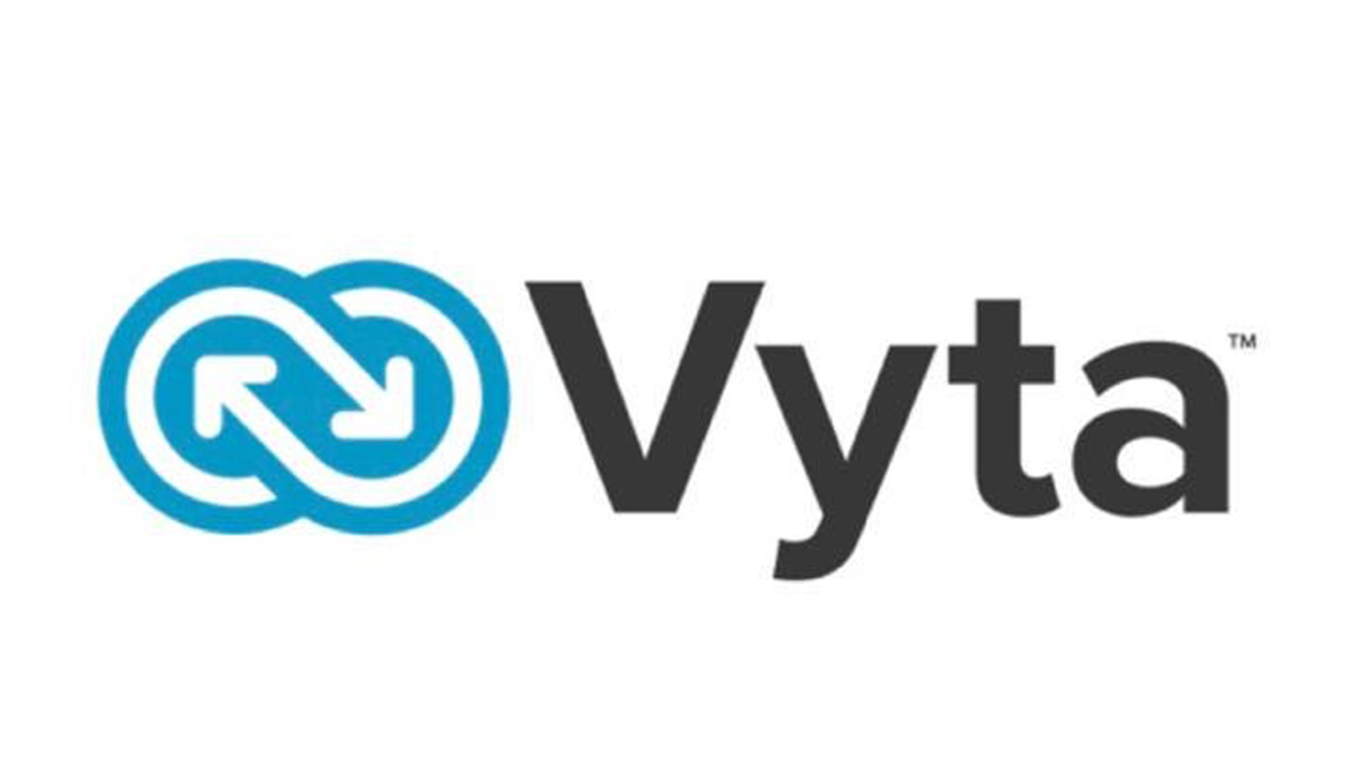
Vyta Group, Ireland’s leading secure IT recycling company, today announces the acquisition of Essex-based IT disposal company FGD, following an £11M investment from MML Growth Capital Partners Ireland (MML). The investment from MML will give it a minority shareholding in the Group. Meanwhile, the existing shareholders and new shareholders – consisting of four members of the Vyta senior management team and the FGD founders – have made significant investments, helping the company to pursue a growth-oriented acquisition strategy across the UK and continental Europe.
FGD will rebrand under the Vyta Group name. Its 37 employees, including co-founders Leigh Medhurst and Daniel Elson, will join the Group, increasing the Vyta team to over 120 across its expanded network of offices in Belfast, Dublin and Essex. It is now one of the largest IT asset disposal companies in Ireland and the UK. Leigh Medhurst is taking on the role of Chief Development Officer, and Daniel Elson is now Vyta’s Chief Technology Officer.
Vyta estimates that the addressable market for its services in Ireland and the UK is in excess of £300M, with further market opportunities in Europe. The acquisition is the first in Vyta’s market consolidation strategy as it aims to increase its market share organically while also acquiring like-minded IT disposal companies. It will be vital to expanding Vyta’s geographical reach as a premium IT asset disposition (ITAD) provider, and the company now expects revenues to reach £16M by the end of its financial year ending 31st May 2022, up from £7M in the previous financial year. Vyta expects to reach revenues of £30M by May 2026.
The FGD acquisition complements Vyta’s existing services, with a strong focus on customer service, sustainability and security. FGD customers will benefit from Vyta’s scale, extended range of services and security leadership in a market where growth is driven by increasingly stringent data regulations, such as GDPR, as well as sustainability concerns and obligations across all sectors. Vyta is one of the most accredited ITAD providers in Ireland and the UK. It holds R2 certification and the highest possible accreditation from the global IT disposal standards body, ADISA; a distinction with honours.
Helping to consolidate Vyta’s position in the market are its two subsidiary brands: DiskShred, providing secure on-site hard drive and media shredding across the UK and Europe; and RefreshedByUs.com, a premium reseller of refurbished IT equipment.
MML is a leading investor in small and medium enterprises on the island of Ireland, with a strong focus on businesses, such as Vyta, which operate in the circular economy. Its investment will see Philip McMichael, co-founder and CEO of Vyta Group, along with the Vyta management team, remain the largest shareholders. Meanwhile, MML investment leads Neil McGowan and Christopher Walsh will join the Vyta Group board. They will work alongside the executive team to support the group’s M&A strategy.
The MML funding comes from the MML Growth Capital Partners Ireland Fund II, a €145 million fund supported by British Business Investments, AIB and a number of international institutional investors.
Philip McMichael, founder and CEO Vyta Group, said: “This is an exciting period of growth for Vyta Group, and we are delighted to welcome our new colleagues to the team. At Vyta, we adhere to the most stringent industry standards while maintaining our commitment to having the best customer service in our industry. Therefore, it is important that we acquire like-minded ITAD companies, like FGD, who reflect our principles and exacting standards, ensuring that Vyta Group remains a company that our people are proud to be a part of.
“This acquisition makes us a stronger company in a highly competitive market. Our expanded team will be immensely valuable to us as we pursue our ambitious growth plans. We greatly admire their work to date and look forward to achieving even greater things together.
“MML not only share our growth ambitions but also our sustainability ethos and dedication to growing the circular economy. The funding, along with their knowledge and experience, will be vital to us as we embark on our strategy to consolidate the UK and Europe’s ITAD market.
“I am extremely proud of our business and our team, four of whom have made investments in the company to become shareholders. It reflects their dedication and belief in what we do. That commitment puts us in a very strong position, and I’m excited to continue to work together as we aim to become the best-in-class ITAD services provider in Europe.”
Leigh Medhurst, Chief Development Officer, Vyta Group, said: “We are very excited to join the Vyta team. Over our 11 years in business, we have achieved immense growth year on year, and we look forward to continuing on this growth path as part of the Vyta team. Our priority, as always, is our customers, and we are looking forward to working closely with them and providing the same level of care and services that they are used to.”
Neil McGowan, partner and co-head of investments, MML Growth Capital Partners Ireland, said: “The European ITAD sector is a fast-growing but fragmented market that presents a significant opportunity for Vyta Group. We are impressed by the company’s management team and their track record in growing the business to date, which, together with MML’s investment and support, positions Vyta optimally as a consolidator in the market.
“At MML, we are committed to investing in the circular economy. By promoting reuse over recycling, Vyta Group enables thousands of tonnes of carbon dioxide savings per year, helping some of the world’s largest enterprises to become more sustainable and contribute to a greener future for all of us. We are very excited to join Vyta Group on this journey to promote corporate sustainability and pursue rapid expansion.”
Related News
- 01:00 am
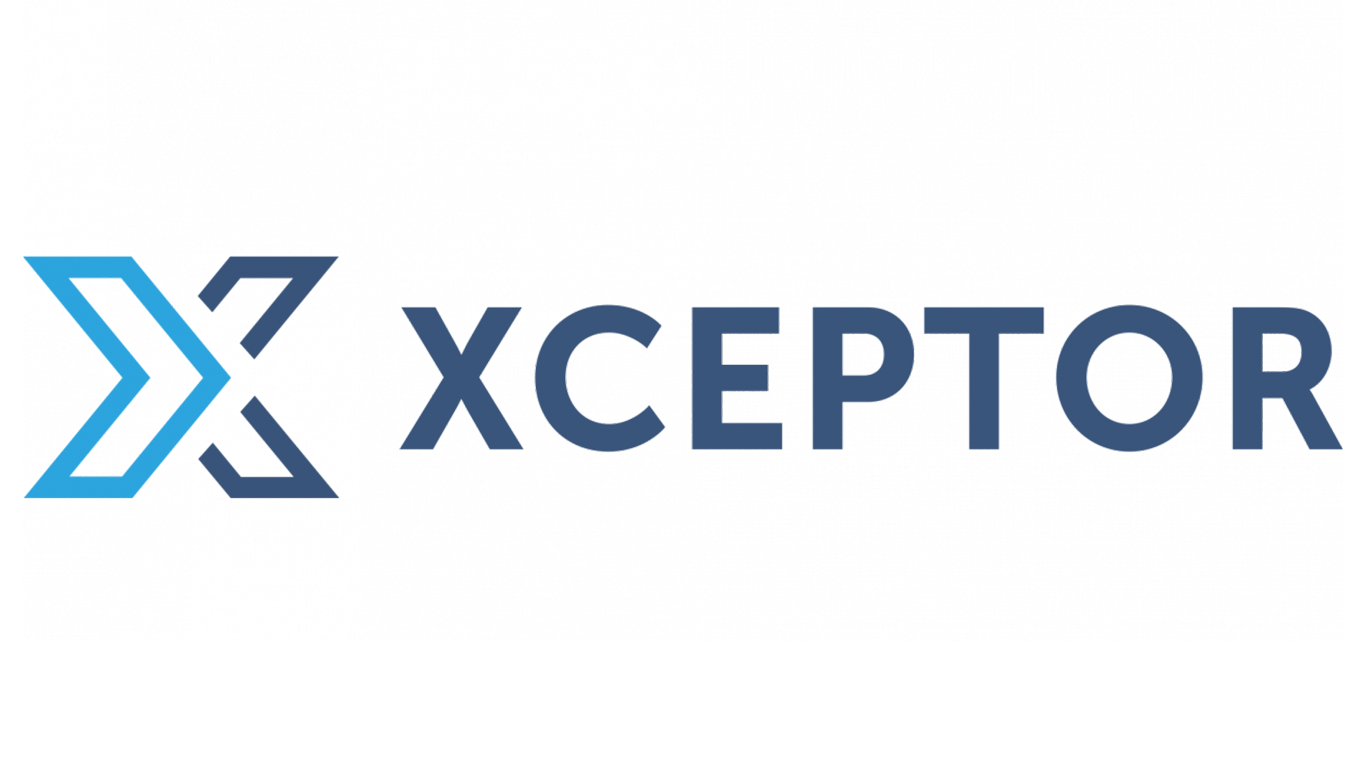
Xceptor, the financial sector’s leading no-code software platform for data automation, today announced the appointment of Pete Daffern as Non-Executive Company Chair. Pete brings over 30 years’ experience within the technology sector, having successfully grown numerous software businesses, including the creation of three companies which achieved market capitalisations of over $10BN.
Pete was most recently CEO at Foresee, and prior to that President of Netsuite. Pete has operated at board level within multiple private equity and VC backed businesses. Today, Pete continues to hold board level positions at a selection of fast-growth technology firms across Europe and North America, including Unily, Cognism, Amplience, Stylitics, Eloomi, and Peakspan Capital.
Commenting on his appointment as Xceptor Non-Executive Chair, Pete Daffern said: “I’m excited and honoured to take on this position at Xceptor. The company has one of the most transformational platforms I’ve seen in the banking, financial services and insurance space and I believe we can build on its already impressive growth to position the business as a truly global enterprise. My focus will be on providing expert guidance to the Xceptor leadership team on high-performance team development, go-to-market strategies, positioning, and product development to optimise value creation.”
Andrew Kouloumbrides, CEO at Xceptor, said: “Pete’s experience and outstanding track-record of scaling software businesses globally will be critical as our clients extend the use of the Xceptor platform across their enterprise and we accelerate our growth to become the dominant platform for the ingestion and transformation of data across the banking, financial services, and insurance sectors. By combining Pete’s exceptional skillset with the significant investment we received from Astorg and Corsair in 2021, we have a strong foundation for the next phase of our growth as we scale the business globally.”
Related News
- 01:00 am

Worldline, a global leader in payment services, and Algoan, a leading credit scoring provider, today announced a collaboration agreement to jointly develop a next-level credit assessment solution to help lenders and services providers make better credit decisions. This service is based on best-in-class APIs & machine learning, making use of open banking transaction data.
Within the secure and user-consent driven framework of PSD2, credit institutions, borrowers and merchants all have the opportunity to embrace a faster, fairer, data-driven credit assessment approach which has clear benefits for all parties. Worldline and Algoan are dedicated to making these opportunities readily available to the market.
Traditional credit assessment practises across Europe involve varying degrees of manual processes and assessments, which are subject to human error and cost both lender and borrower a lot of time to process a credit application. Following the fundamental changes in the financial services industry, the task of assessing potential borrowers is becoming more and more difficult with traditional assessment methods no longer meeting consumer expectations and not keeping pace with digital transformation or regulatory changes. The credit & risk assessment process has a lot to gain from PSD2 opportunities, as Open Banking and Open Finance continue to provide better and faster services to consumers and institutions.
Unleashing the power of Open Banking
The partnership will combine Worldline’s pan-European Open Banking reach and expertise in digital banking, combined with Algoan’s credit scoring expertise that uses best-in-class machine learning algorithms, therefore offering a new Open Banking-based credit-assessment tool. This will enable banks, credit institutions, lending companies and service providers to take credit scoring to the next level, resulting in more accurate scoring, access to better data and improved processing efficiency. This innovation can be valuable for many use cases, such as Personal Finance & Consumer Lending, Auto Finance & Leasing, Retail Lending & BNPL (Buy Now Pay Later), Insurance and Utility Providers.
Benefits for both lenders and borrowers
Open Banking-based credit assessment brings significant advantages to both lenders and borrowers. As the lender receives data from the bank, the data validity is ensured which will reduce the risk of fraud. Based on a more accurate assessment, applicants can be accepted who may otherwise have been declined. With access to consumer account data, based on user consent, lenders quickly get a better view of the actual financial situation of consumers and can meet the borrower’s needs without risking over-indebtedness. In addition, the lender can provide a fast, straightforward customer journey while the borrower receives a fair credit assessment and a faster time-to-yes.
At the heart of this new credit assessment tool is Worldline’s Open Banking API, which provides access to more than 3,500 banks in 19 countries across Europe. Worldline is one of the largest Open Banking providers in Europe.
Michael Steinbach, Managing Director Financial Services at Worldline: “At Worldline we look for innovative partners who share our vision and enable us to enrich and expand our open banking services. As a leader in payment services and one of the largest Open Banking providers in Europe, we are committed to unlocking the full potential of Open Banking. With Algoan, we will be able to offer our customers an end-to-end, fast and cost-efficient white-label solution to assess credit worthiness”.
Michael Diguet, CEO at Algoan: “Open Banking credit scoring is experiencing momentum that big players should embrace. We are delighted to collaborate with a global leader like Worldline and to power them with our best-in-class global credit scoring API. This new collaboration marks a further milestone in Algoan’s international growth. We look forward to jointly revolutionising the credit industry by exploiting Worldline’s Open Banking capabilities."
Related News
- 05:00 am

Financial Risk Solutions (FRS), provider of investment administration software to asset owners and life and pensions companies worldwide, today announced Generation Life, an Australian leading provider of tax-effective investment bonds, has launched an investment-linked lifetime annuity solution using FRS’s Invest|Pro™ as a key component of Generation Life’s technology supporting the lifetime annuity. FRS specifically adapted its award-winning unit-linked software platform to support the investment-linked annuity’s unit pricing requirements and to comply with Australian tax rules.
FRS’s Invest|Pro™ software is automating unit pricing, cash allocation and rebalancing, tax accruals, investment accounting and reporting for Generation Life. The solution also provides advanced reporting and analytics, audit trails for all activity, email alerts and dashboard monitoring.
Drawing on FRS’ global expertise, the Invest|Pro™ technology has assisted Generation Life in bringing this new investment-linked annuity offering to market with effective risk controls yet having light human touch in the investment administration process. The decumulation solution offers a choice of 23 investment options, using glide path solutions with different tax treatments embedded in the technology.
Patrick Clarke, General Manager – Retirement Solutions at Generation Life, said;
“We are very excited about this pioneering solution which meets advisers’ growing needs for innovative retirement income solutions to maximise the quality of their client’s lifestyle in retirement. We are especially proud to be the first firm to launch an investment-linked lifetime annuity solution in the Australian market, which is designed to complement other solutions available.”
John Laver, Head of Investment at Generation Life, said;
“Our investment administration system Invest|Pro™ from FRS plays an important role in the management of the solution and has helped grow our range of offerings. As one of the leaders in after-tax investing in Australia, we look forward to applying our innovative approach and expertise in managing life event solutions to the annuity market and contributing to the growth of the market for the benefit of Australian retirees.”
Frank Carr, CMO at FRS, commented;
“Market-leading tax-effective investment bonds company, Generation Life has again displayed its innovative culture by being the very first firm to launch an investment-linked lifetime annuity solution using Invest|Pro™ in the mature Australian pension market. FRS are very honoured to play a part in the launch of this exciting product and Generation Life’s growth strategy.”
Related News
- 04:00 am
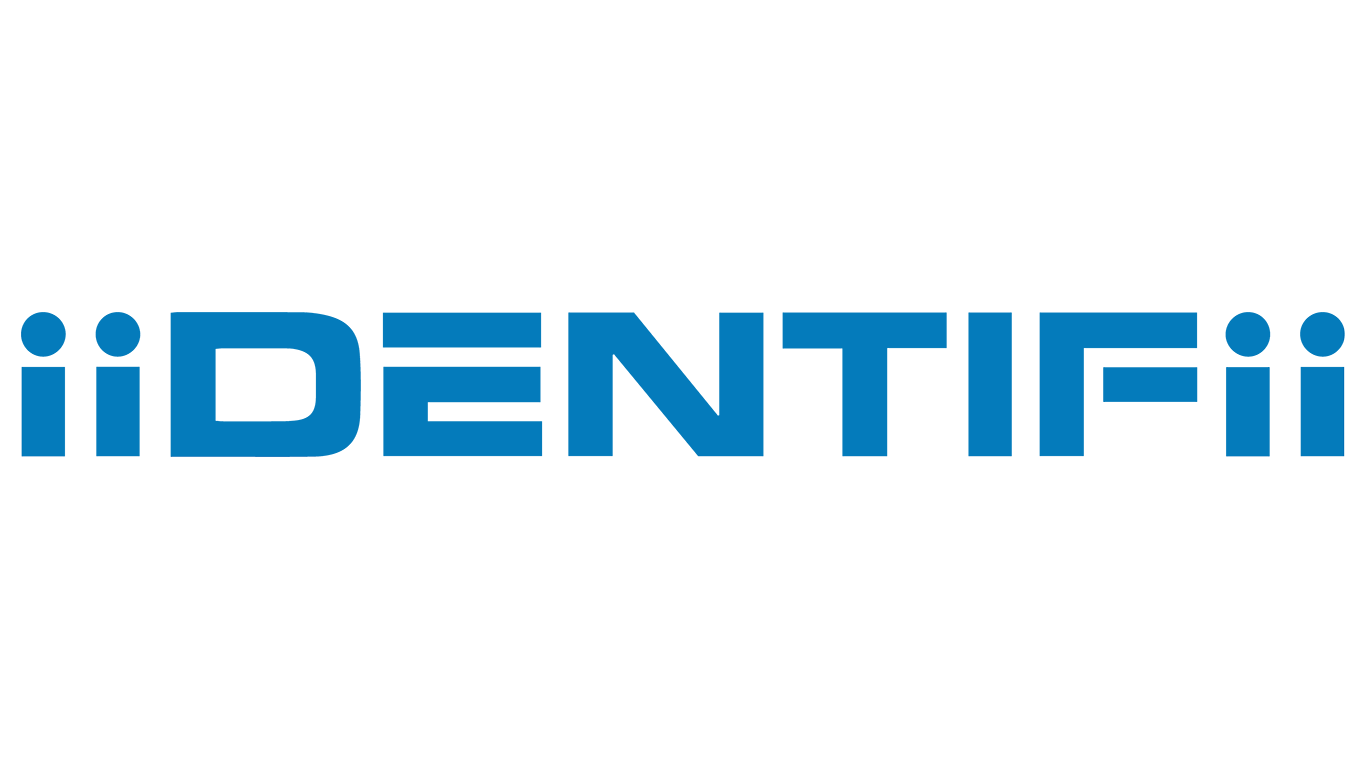
How do you do trust someone you can’t meet in person? It’s a question organisations have been grappling with in the age of the internet, KYC requirements, and the rapidly escalating costs and consequences of identity fraud.
“Enter biometrics with liveness detection, a state-of-the-art solution that onboards customers securely, easily, and quickly,” says Lance Fanaroff, Co-Founder and Chief Strategy Officer, iiDENTIFii – leader in remote biometric digital facial authentication and automated onboarding technology.
Traditional facial recognition methods have been rendered almost obsolete as fraudsters use sophisticated spoofs that exhibit human traits including photos, videos, deepfake puppets, masks, and dolls. “Even authentication processes with gesture and motion requirements to overcome this problem can be thwarted. Blinking your eyes and moving your head is inadequate and can still be spoofed,” says Fanaroff.
Artificial Intelligence (AI) has emerged as a powerful weapon in the fight against identity fraud which increased by a staggering 337 percent in 2020 according to the Southern African Fraud Prevention Service (SAFPS) and cost the South African government R1 billion in bogus Covid-19 relief claims.
“The most effective way to close the glaring identity gap is through AI biometrics which uses liveness detection to determine that it is interfacing with a genuine, physically present human being before they are even asked to present a valid ID document which is a big deterrent to fraudsters who do not want their real face on camera,” notes Fanaroff.
He adds that identity fraud has historically been difficult to detect and even harder to combat as fake identities look just like real customers. “Gaps in fraud prevention capabilities partly stem from human error as well as an absence of source data to verify individual identities. AI can proactively mitigate fraud with real-time detection far quicker and more accurately than any human can. iiDENTIFii’s own remote biometric digital authentication technology can verify and automatically on-board a person in under 30 seconds.”
And innovations in remote digital identity authentication technology are only getting better. “Identity fraud can now be significantly reduced. This creates a safer world where everybody, everywhere and on any device, has an authenticated face and a name. This pioneering technology has already been extensively tried, and stress-tested at scale in South Africa. 4d liveness™ as we refer to it at iiDENTIFii, at this point in time, is the most spoof-resistant method of remote digital biometric authentication.”
Fanaroff says remote authentication and verification is fast becoming part and parcel of doing business as the world, along with its communications, customers and commerce, moves exponentially online. “Not being able to efficiently spot bad actors leaves a company and its customers open to significant losses. These losses are not only financial. Fraud carries legal risks together with the possibility of severe reputational damage and loss of public trust and is a risk most organisations simply cannot afford to take.”
“By comparing the user’s selfie and ID document data with relevant government databases, iiDENTIFii’s 30-second triangulation technology accurately authenticates someone’s identity. In the time it takes to snap a selfie, advanced algorithms and AI stops fraudsters in their tracks.”
Related News
- 08:00 am
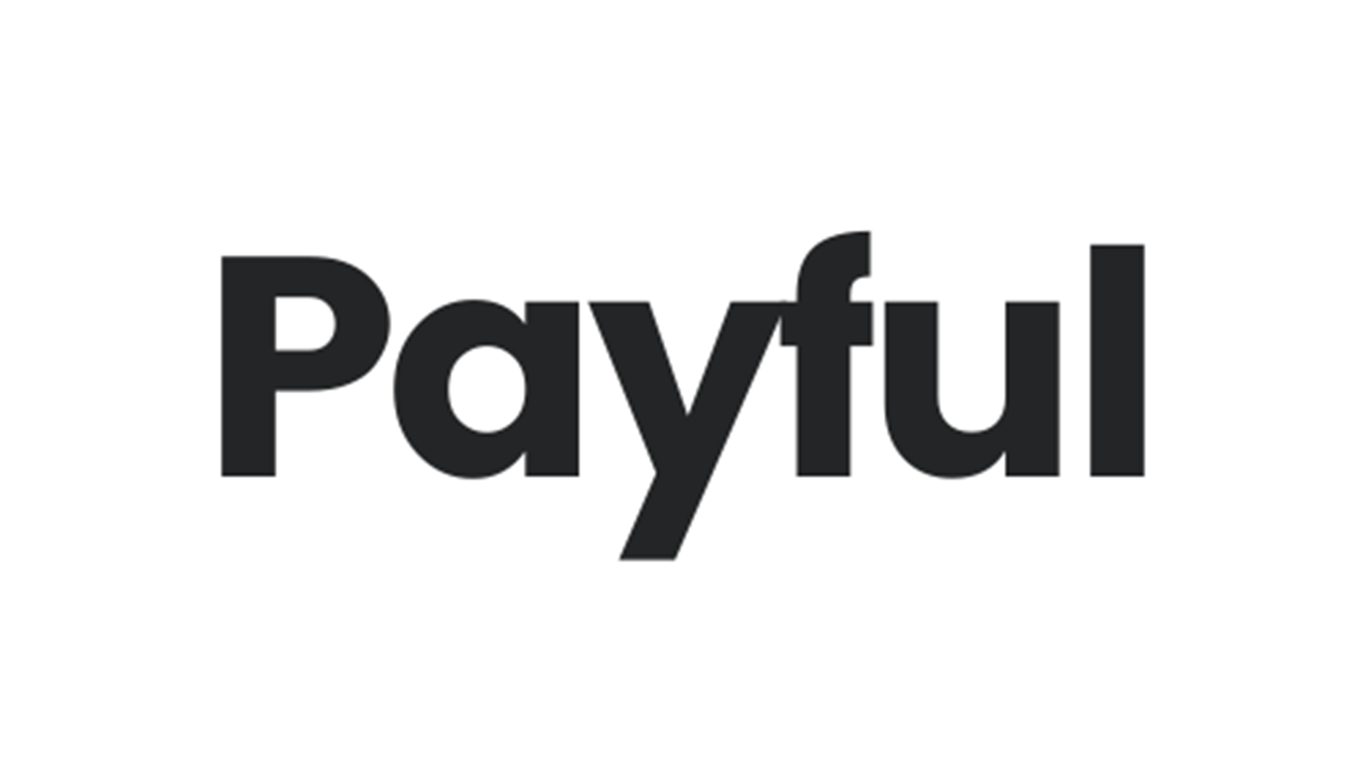
Payful, a new startup dedicated to eradicating late invoice payments across B2B transactions has secured its place on Enterprise City’s ‘Exchange Support Scheme’. As part of the selection, the fledgling Manchester-based FinTech will now move its offices to the city’s famous Bonded Warehouse.
The ‘Exchange Support Scheme’ will help Payful as it begins to scale and grow operations ahead of an imminent pre-seed fundraise. The accelerator is now in its third year, having supported 44 businesses in the past year alone. Moving forward, Payful will benefit from this experience and gain access to new networking opportunities. The company’s selection also confirms its place among other exciting startups in Manchester’s emerging FinTech scene.
The transformational business, started by founder, Andy Taylor, has been designed to address late invoice payments, a real challenge within the world of B2B transactions. Unfortunately, the issue continues to affect the economic viability of many businesses. In fact, the Federation of Small Businesses (FSB) recently warned that as many as 50,000 businesses could go bust in the near future as a direct result of late payments.
By building innovative proprietary technology, which can score invoice payment performance, Payful is offering an inventive solution to this long-standing problem. With the company’s service, businesses can showcase an independent assessment of their invoice payment performance. In turn, companies can then demonstrate a proven track record to prospects, clients, and suppliers, which helps to build trust.
Speaking on the company’s growing success, founder and CEO, Andy Taylor commented: “Payful’s selection on the ‘Exchange Support Scheme’ is affirmation of our growing reputation and underlines the level of interest in our groundbreaking invoice payment scoring solution. As a business, we’re devoted to tackling the challenge of late payments head-on and have made it our mission to eliminate the issue across the globe by 2032.”
Alice Glover, Community Outreach Lead at Exchange at Enterprise City, said: “Payful is a brilliant addition to the scale-up community and cluster of fintechs we have created at Department Bonded Warehouse. The team’s ambitions match that of ours in creating a generation of tech businesses that will change the current status quo in their respective industries. Andy and Payful also share our desire to support SMEs and enable them to thrive. We’re excited to see what is next and support them as they scale and grow throughout the next six months.”
Following the aforementioned selection, and its move to the Bonded Warehouse, Payful is now planning an official global launch later this year, which will see its service go live in 180 countries. This expansion will be supported by the ‘Exchange Support Scheme’ and bolstered by a recent beta program in Britain and Cyprus, which verified the company’s ability to accurately identify businesses that can be relied on to pay invoices on time.
For more information about Payful and its 2022 plans, please visit: https://trypayful.com/









